
Uganda will not transform her economy without a deliberate state-implemented land reform which sets a ceiling on the maximum landholding, protects the rights of tenants, and eliminates the “entrepreneurs of land conflicts”!
Why have land conflicts and “land grabbing” become so rampant in Uganda? Can Uganda achieve its goal of commercialising agriculture and by extension transforming the economy without a deliberately enforced radical land reform?
Will the proposed efforts under the “Operation Wealth Creation” (OWC) to transform the agricultural sector succeed under the prevailing land ownership, access, tenure, and governance? What needs to be done to end the land wrangles in Uganda, secure land rights, and provide incentives to small holder farmers to raise their productivity so as to boost their household incomes, escape poverty, and guarantee food security?
These were some of the questions at the back of my mind as I penned a concept that I shared with my friends, and now fervent partners, at Friedrich Ebert Stiftung (FES) a couple of months ago. In FES, Uganda has great friends. They are a German political foundation associated with the Social Democratic Party of Germany. Few foreign organisations act genuine and honest allies to Uganda’s interests.
Last week the MUBS Economic Forum that I head and the FES held our 15th Public Forum under the theme “Rethinking the Land Question, Food Security and Agricultural Transformation in Uganda.” It was such a fantastic debate among well-meaning Ugandans of different ages, gender, social and economic status, and political affiliations.
In this piece, I intend to summarise the key messages that came out of this important dialogue. The debate started with a presentation of a paper entitled, “The Rationale, Successes and Challenges of Uganda’s Legal and Policy Framework of Land”.
What informs land give-aways?
John Kiguli, a senior lawyer and tutor of land law, identified for us the various challenges within our Land Act and Constitution which have resulted in mass evictions, overlapping rights, land conflicts, and institutional proliferation which has resulted into confusion in land governance.
He also identified a number of legislable areas to resolve the land question in this country. One was on the overlapping rights in the same piece of land — ‘lawful occupant’ vs. ‘bona fide occupant’, registered land owner vs. statutory tenants, the fate of institutions such as Buganda Land Board that exist without legal status etc.
Another lawyer and law don at Makerere University, Robert Kirunda, helped us to reflect on the land “ownership,” “use,” “rights,” and “interests” in this country. He asked key questions such as: What informs land give-aways such as Mabira, Amuru, Namulonge? Should ‘investors’ be required to take measures that guarantee food security? He quoted the sugar growing phenomenon in Busoga for an example.
He ended up positing that land tenure (customary vs. mailo vs. freehold vs. leasehold), food security, and agricultural transform are ultimately a political question. He opined that without good land governance, we were bound to see what is happening in Uganda; breakdown in security of tenure, perplexing question of “foreign investors,” limited access to capital, and rural-urban migration.
He contends that all questions around access to land and land tenure in Uganda reflect a long-standing clash between historical and present challenges. He thus suggests that since the legal framework falls short of providing much needed solutions to the questions on access and security of tenure, the troubling questions around this symbiotic relationship between land and agricultural development are beyond the purview of the law. They need appropriate political answers.
Juliet Kiguli, a professor of anthropology at Makerere University called for more political answers to deal with the tradition, norms and practices in Uganda that have a tendency to discriminate against women with regards to access, control and ownership of land.
Land and woman
My fellow economist, Lawrence Bategeka, who is waiting to be sworn in as the Member of Parliament for Hoima Municipality — he pulled out one of the “natural leaders” of Uganda, Mzee Henry Kajura — and I, were given the task of linking the land question to the agricultural and economic transformation of Uganda.
Lawrence dealt with the reforms needed to achieve the above, while I looked into the nexus between good land governance and inclusive economic transformation. We found our papers meeting both in gist and content yet we never caucused! This was an indication that perhaps we shouldn’t be debating the obvious. This government employs a lot of people who know or ought to know what should be done to transform this country.
So the question we should may be ask is: why have our leaders and other technical people in charge of the affairs of Uganda failed to do what is needed to transform this easily transformable country?
We all know how important a resource land is. We all know that if you want to die in Africa, touch two treasures of man: land and woman. It’s common knowledge that when farmers are not secure about the land they are cultivating there is no incentive for them to adopt modern technology (such as buying high yielding seed, fertilizer, and machinery).
We also know that environmental sustainability (such as planting trees, protecting soil fertility, etc.) depends on emotional attachment to the land. It is Aristotle who said, “No man can practice virtue who is living the life of a mechanic or labourer.” We know that with undocumented land, farmers cannot use land as collateral to access finance. We all know that failure to resolve land issues is a barrier to achieving other development objectives.
“Entrepreneurs of land conflicts”
Yet we pretend to believe that the market will work to sort the land issues through the “invisible hand”. Yet it is now common knowledge that the so-called invisible hand is not only invisible; it does not exist at all!
We have ended up choosing an economic system that is centred on struggles between peasants, landlords, ‘investors’ and the State for the equalisation of land rights, and we hope we shall use it to develop Uganda.
This system has bred an alliance between government and the “investors” which will only serve to further undermine the position of smallholder farmers in land marketisation processes. The liberal model has already created a generation of landless people in an agrarian society.
I really get astonished when I see leaders rising up on political platforms to declare how Uganda is going to transform agriculture and its economy under this land governance chaos!
In a recent research, a man in Kigwe, a village in Pader district in Northern Uganda, bluntly put it; “We use violence because it brings quicker solutions than following the law and other structures.”
People have lost confidence in land institutions. They do not know where to report their land dispute. You the politicians and other leaders have turned yourselves into “entrepreneurs of land conflicts”.
On one hand people want their claims and property rights recognised while you (LC chiefs, traditional leaders, courts, RDCs, MPs, Ministers, and President) want to legitimise your power and authority. Cases that are referred to you bring you honor and authority. Thus, you have something to benefit from the increasing land conflicts.
Stop “gifted by nature” slogans
We need to stop this. The earlier we implemented a radical land reform the faster we shall transform this country. Let us do away with absentee landlords through a “Land to the Tiller” policy. Gen. Salim Saleh told us at the dialogue how he had just established in a meeting with various stakeholders in land and Uganda’s economy that about six families, the Buganda Kingdom, and the Church of Uganda own nearly 90 percent of the land in and around Kampala City.
I asked him whether his own government thinks this was okay, and if not, why it has not taken the initiative to reform this bad tenure. The good General conceded that he was also equally baffled!
Mr. President, Uganda will not transform her economy without a deliberate state-implemented radical land reform which sets a ceiling on the maximum landholding, redistributes land to the landless rural poor, protects the rights of tenants, and eliminates the “entrepreneurs of land conflicts”!
We all the story of India; her huge population and land shortage. Yet India has in the last four decades transformed her economy. It all started with land tenancy reform. For example, in West Bengal, prior to reforms, there was insecure tenure and leases were informal. In 1977 tenants were given choice of registration under what was termed as “Operation Barga”.
A registered tenant could not be evicted provided they paid a legally stipulated share of 25 percent of output to the landlord. The result of this reform? Food grain grew from a meagre 0.43% between 1968-80 to 5% post 1980. Operation Barga raised India’s overall agricultural productivity by 69%. Her neighbours such as Bangladesh that adopted the Green Revolution without being preceded by land reform are still languishing in poverty.
Mr. President, as the authors of the book “Why Nations Fail” put it; poor countries are those under “extractive” institutions — institutions that place power in the hands of small elite that (mis)use it to exploit the masses.
It is not geography (“gifted by nature” slogans), neither PhDs, nor free planting materials given to peasants, nor oil that will develop Uganda. It is the inclusive institutions, beginning with good land governance that will provide the incentives to smallholder farmers and thus a pebble for rapid and sustained economic transformation of this Pearl.
To achieve this, Mr. President, you will need to reduce what Prof. Ogenga Latigo calls the “Dominance of Politics over Leadership”. As you swear in for your nth term, declare and implement an “Operation Land Security” as a prerequisite for the OWC. We cannot create wealth in this chaos.




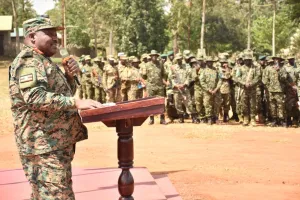
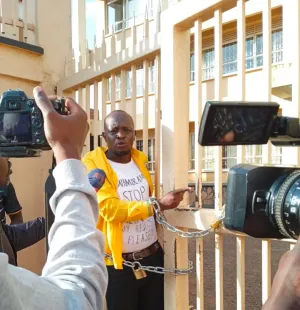
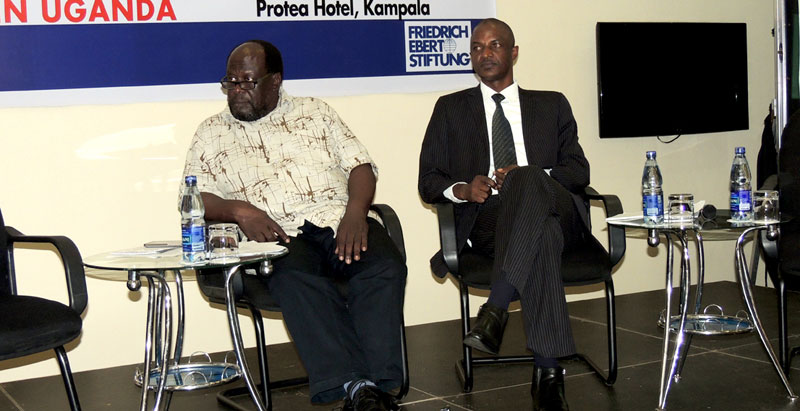





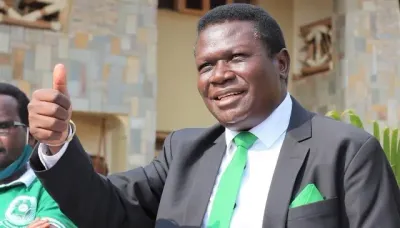
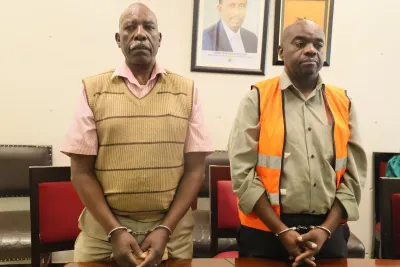
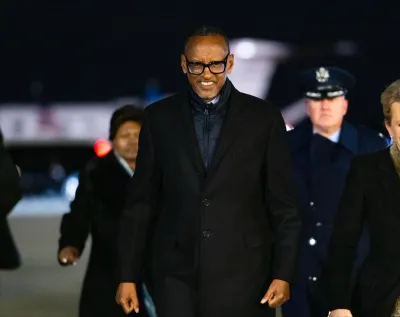
Ramathan Ggoobi
Ramathan Ggoobi is Policy Analyst, and Researcher. He lecturers economics at Makerere University Business School (MUBS) and has co-authored several studies on Uganda's economy. For the past ten years, he has published a weekly column 'Are You Listening Mr. President' in The Sunrise Newspaper, Uganda's Leading Weekly
Leave a Comment
Your email address will not be published.